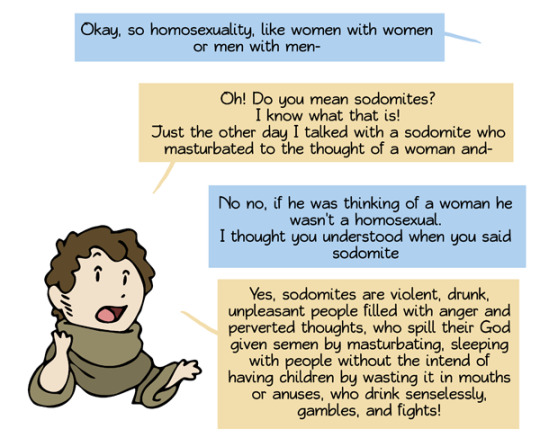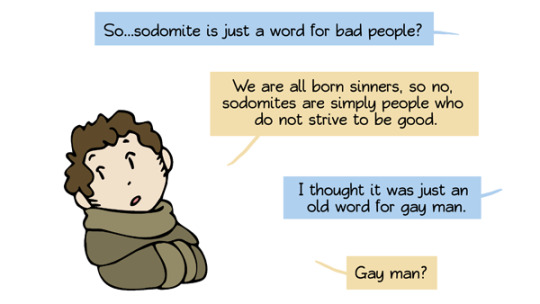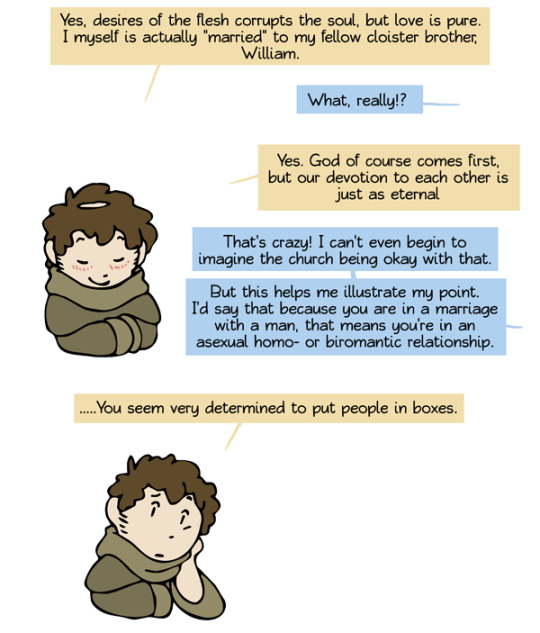Don't wanna be here? Send us removal request.
Text
Rethinking the Angus Leung case and ‘winning’ spousal benefits for same-sex married couples in Hong Kong: a victory or still a long way to go?
Recently, civil servant Angus Leung won his case against the government and the Court of Final Appeal in Hong Kong ruled in favour of him and his husband Scott Adams, who have entered into marriage overseas, getting a joint tax assessment option. It does not only push forward the public recognition of sexual coupledom of gay and lesbian-identified couples but is also significant in opening up an alternative narrative in the legal discourse regarding the systematic injustice. However, in my opinion, there are still potential dangers in a pre-mature celebration and a dire need to rethink the notion of same-sex marriage or marriage itself and the equality recognizing it grants (or does not grant).

On the plus side, the court ruling was an essential step in validating same-sex couples’ sexual citizenship in terms of relationship-based rights claims. In “Constructing sexual citizenship: Theorizing sexual rights,” Richardson writes, “Although the language of rights largely speaks to the freedoms and obligations of the citizen, many citizenship rights are grounded in sexual coupledom rather than rights granted to us as individuals”. This judgment gave same-sex couples married overseas the spousal benefits their marriage status should grant them. It is also significant that the court statement reads “the absence of a prevailing view in society was no reason to deny the rights of a minority”, thereby affirming these rights as basic human rights which cannot be swayed by public opinion.

On the downside, we need to beware of the entrapments of rejoicing at this partial recognition of same-sex marriage. To rally for the legalization or recognition of same-sex marriage is inevitably to resort to the politics of assimilation in order to earn acceptance by the largely heteronormative society. Butler writes in “Bodies That Matter: On the Discursive Limits of ‘Sex’” that “[Heterosexuality] can augment its hegemony through its denaturalization, as when we see denaturalizing parodies that re-idealize heterosexual norms without calling them into question”. By the same token, in the endeavour to conform to and re-idealize the heteronormative norms without questioning them, the hegemony of heteronormativity is augmented. We need to keep in mind that the legalization or recognition of same-sex marriage is not equivalent to equality for all. Rather, it appeals to the policy of sameness to produce what Lisa Duggan coined as “homonormativity”, by duplicating and re-circulating the ideals of heteronormativity of a ‘long-term’, ‘monogamous’, ‘loving’ and ‘intimate’ sexual coupledom. Petitioning for the approval of a monolithic ‘good gay image’ of the married couple inevitably equates the negation and erasure of any diversity in the queer community and gender identification. We do not only want people who identify as gay men and lesbian women to have marriage equality. In fact, we want all people who identify as men, women, gender fluid, non-binary, transgender, or genderqueer and all else to have equality and freedom. We also do not only want marriage equality for all, as ‘marriage’ is a narrow and somewhat exclusive notion denoting the ‘right’ form of relationship for the ‘right’ genders. Rather, we demand the freedom for all to have conduct-based rights claim, identity-based rights claim and relationship-based rights claim in what Diane Richardson termed as sexual citizenship.

(Charmed Circle of Sexuality by Gayle Rubin)
The implication behind is that while we applaud the partial victory of the Angus Leung case, we must never stop pondering what would be authentic equality for all and how we should build upon partial victories to achieve it. I would suggest that the politics of liberation would be a better alternative to the politics of assimilation and that only by celebrating diversity can we truly prevail in queering the notion of marriage and disrupting the source of inequality: the hegemony of heteronormativity.
0 notes
Text
Observations of a normalized slut-shaming discourse on Facebook over Hong Kong artist Shirley Yeung Sze Ki’s announcement of a second child who takes her surname
Hi all, SapphicTrash here with the ranting again. Recently, Hong Kong artist and former Miss Hong Kong Shirley Yeung Sze Ki announced on Facebook the birth of her second child who, like her first child, would take after her surname. This resulted in the Facebook netizens’ one-sided demonizing and slut-shaming of her, and endless speculations regarding why a child would take a mother’s surname and the true marital status of Yeung. After reading the comments on the news article, I found myself enraged at the widely normalized discourse of whore-shaming using the narrative of heteronormativity, misogyny and a monolithic narrative of the hegemonic social order of the family. As I ranted before, I believe that online discourse and social reality are co-dependent and what we talk or hear about online affects how we think and act in real life. It is dangerous to allow one narrow misogynistic voice to take the complete ‘moral high ground’ (and why on earth would it succeed to do so???) on the virtual space. As such, I would like to offer an alternative voice here in reply to what the netizens said and to problematize some of their ideologies behind.

One of the most employed phrases in the netizens’ comments is the ‘cheap’ discourse using the narrative of slut-shaming. One netizen said, “She has a pretty face, and can be a player, and doesn’t concern herself over losing face, her only condition is [the suitor] having money, some Miss Hong Kong! Cheap. (人地𡃁嘛,又玩得起,又吾怕冇面,有錢就得,呢個港姐!cheap)” Two others agreed with his logic by saying that Yeung is “a whore (淫娃)” and “has no limit to her promiscuity (亂到咁樣都得)”. It would seem that in this discourse, a woman who gives birth to a child without an apparent father is a promiscuous woman who should be subjected to ridicule. I would like to say in reply that Yeung has autonomy over her body, her sex life, and her motherhood, like any other woman. She doesn’t need to be married to a man to ‘gain’ these rights and the magnifying glass the public scrutinizes her through just because she is a celebrity is unsolicited and largely unfair. A woman should not be deemed ‘cheap’ or be devalued simply because she has a child who takes her surname. A woman should also have what Diane Richardson aptly termed as conduct-based rights claim in sexual citizenship, untethered to the relationship-based rights claims.

Another prominent discourse is a narrative that criticizes her non-conformity to the hegemonic family order. One netizen said, “[Your] son and [your] daughter have different fathers, still you would ridicule yourself by publicly posting their births. I am so humbled by you Yeung Sze Ki! [Your] face is as thick as Carrie Lam, shameless! Don’t care if people laugh at you! Live your life in a low-key manner, can’t you? (囝囡都唔同老豆,仲出po嚟獻世,服咗妳囉楊思琦!面皮同林鄭咁厚,唔知醜!唔怕人笑!做人低調D,係咪唔得呀?)” It would seem that in this discourse, only one family model is acceptable, which is a heteronormative family with a father and a mother bound by marriage with children taking their father’s surname. Any woman who starts and owns a family without a man in the house is allegedly a ‘disgrace’ and disrupts the hegemonic family order of the society. I would like to say in reply that this logic is highly exclusive and hypocritical as with a divorced woman with children who take their father’s surname, such criticism would not stand and would not be as generally seconded. The true sentiment behind is misogynistic and directed solely at women who have pre-marital sex and give birth to children outside of marriage. In my opinion, Yeung is brave in challenging the monolithic family order and queering the notion of family. A woman can start and own a family with or without a man, and her children should be able to take her last name without the public’s disapproving gaze. There is no one way for a family to be functional and loving, and a man is not always necessary in the equation. Her personhood, motherhood, and status as the master of the house should not be devalued due to the absence of an apparent man in her life, just as any woman should not be devalued for her ‘lack’ of a male companion in life. It is not a ‘lack’ at all as it is a choice. Even if it is a lack, singlehood is respectable and is not a cause for shame either.

Most troublingly, there is a third discourse using the narrative of the insinuation of money transfer as the true nature of Yeung’s marital status and motherhood, which thus condemns her as a lowly woman. One netizen said, “Miss Sze Ki’ is her own baby’s conceiver, so next time if any gentlemen are interested in ‘sowing his seeds’, you can consult Miss Sze Ki’s prices. (“思琦姐”個BB經手人係佢“自己”,咁下次如其他男仕有興趣“播種”生仔,就可找“思琦姐”接洽議價)”. She was also put down as “the rich men’s flesh urinal (有錢人嘅肉便器)”, “everyone’s public toilet old hen (眾人廁所老雞乸)(hen is a Cantonese slur meaning prostitute)”, and is “worse than Temple Street $20 for one [sexual] transaction (衰過廟街廿蚊一Q)”. It would seem that in this discourse, a woman with children taking her surname is referred to as the equivalent of a prostitute and a monetized surrogate mother. I would like to say in reply that it is highly problematic to use the notion of prostitution or surrogate motherhood as slurs to devalue a woman as this demonizes sex workers and devalues sex work. This slut-shaming strategy of ridiculing women as sex workers is highly problematic as it disregards a woman’s agency and ownership of her body by disparaging sex work. Sex work is work like any work and a sex worker is a worker like any worker. Labour is put in for livelihood and her choice to become a sex worker should not solicit doubts on whether it is a ‘free’, ‘rational’, or ‘right’ one. A woman has agency over her own body and she should not be obligated to justify her choices. And so what if a woman accepts money for her services as a surrogate mother? Motherhood is still sacred and the ten months of pregnancy and eventual delivery are still hard labour. A surrogate mother is a mother like any mother and is not by any means a ‘cheap’ woman. These slut-shaming discursive strategies demonstrate a highly misogynistic logic in its demonization of women sex workers and cause even more collateral damage than they deal on the original matter at hand, and it is unacceptable.

In conclusion, the normalized and one-sided discourse which demonized and slut-shamed Yeung is unacceptable and should be examined using a critical lens. Online discourse and social reality are co-dependent and what we talk or hear about online always affects how we think and act in real life. But also, according to Foucault, where there is power, there is resistance. These overflowing misogyny can raise our awareness of dominant ideals perpetuating gender inequality that underline online discourses and inspire a retorting mind and voice, if only we object to the normalization of them. A woman’s body has always been a battleground. But perhaps it is high time that we become aware a woman owns her body and ought to have undisputed autonomy over her body, her sex life, and her potential motherhood, without the prerequisite to conform to the ideals of heteronormativity.
0 notes
Text
Character study plus observations of lesbophobic and misogynistic online discourse on LIHKG with regards to a queer JAV porn-star
SapphicCritique here again. Today, I would like to introduce an awesome queer celebrity to you and be a killjoy and rant about what I find to be troubling lesbophobic and misogynistic online discourse on LIHKG in a discussion thread of running commentary on Shiina Sora’s performance in her newest films. I am not going to expose the usernames of these forum participants, but I am going to quote some of them in this blog.



Shiina Sora is this hot JAV porn-star who came out as a lesbian ciswoman in the year 2013. She is open about her sexual orientation and her personal love life and even produced a series of real-life sex documentary called ‘Bibians’ with her ex-girlfriend (then girlfriend) in the years 2013-2015, making her a pioneer as the first gay woman to come out in the industry in Japan and the first star to produce a real-life sex documentary with her actual lover. Her godly status in the industry is seen in her title, the female version of Taka Kato the Adult Films King (unrelated: why is the male version unmarked and the female marked?) Her performance in adult films is subversive due to her queer identity and high acceptance of different forms of sex. She is supportive of queer rights and sex-positivity, and she is also an active fighter on the front of dispersing AIDS-related attacks on the gay community. She is also known for her genderfucking performance as an occasional casual drag king and a woman penetrating man in some of her films.



(Shiina Sora with her signature pose, with the same name as her self-dubbed title, the god of Teman [fingering in Japanese])
The discussion thread I meant to discuss here shows the construction of gender ideals on digital media through a homosocial, misogynistic and heteronormative discourse. Namely, it is an online co-construction and re-articulation of the tough masculinity ideal which involves homophobic slurs and sexual objectification of women as vile bodies. It is needless to say I was very mad and dumbfounded to see some forum participants of LIHKG take this female subject who is queer and assumed agency through her openness about sex out of context and objectify her as merely “the sex” and the queer other, and proceed to talk about conquering this “unattainable prize” in the language of rape culture. I believe that online discourse and social reality are co-dependent and what we talk or hear about online affects how we think and act in real life. Therefore, it is highly meaningful for us to always question how online discourse is shaped in such a way that it both informs and re-articulates gender ideals both online and in real life.

Some of what these forum participants said brought my attention to their alarming lesbophobia and how it is vastly different from homophobia charged towards gay men. Some of the forum participants said and I quote, “Fucking a pretty tomboy is THE dream. Fuck her so hard until she turns fucking straight.” “Since she admitted to the public what her sexual orientation is, it makes it that much more exciting to jerk off to her films.” “Cunt’s fucking unwilling face when she’s getting fucked… like it is I who is fucking her out of her mind and reverting her into a damn normal woman.” It seems significant that this kind of ��conversion by sex” criticism is phallocentric, and I seldom hear of criticism of male-identified homosexual people in the same manner. I wonder if it has to do with the notions of the penis as powerful and the man as the conqueror. In this discussion thread, I also catch some hints of gay-suspecting in the forum participants. Some are dissatisfied that one of them found Shiina’s gender performance of ‘female masculinity’ hot and subjugated him to gay-shaming, insinuating that maybe he “wanted to be fucked by her wearing a strap-on dildo” and was latently gay, thereby not belonging there with them. I wonder if these two ideas are conflicting, or if they are two facets of one tough masculinity ideal. Why in the homosocial interaction, the majority of the participants policed dealignment from heterosexual masculinity through a homophobic discourse? Why did one person’s dealignment harm the group’s heterosexual masculinity?

The group-dynamics in this online locker-room talk is so strange when I notice that both online and in real life, some men tend to boast of their sexual conquests (or made-up sexual conquests) and that it is strictly homosocial yet universal, almost as if they either want or need to massage their and each other’s egos by upholding this façade under some kind of peer pressure. It is deeply troubling that they do not see (or they knowingly ignore) the misogyny in this behaviour. I seldom find women doing this. I think I first became aware of this kind of behaviour when reading Deborah Cameron’s blog, language: a feminist guide, where she noted that nearly all men partake in misogynistic conversation to uphold a kind of strictly heterosexual masculinity and foster heterosexual homosociality, to distance themselves from any doubt that they could be homosexual and thereby not masculine. This leads me to ponder the heterosexual matrix proposed by Judith Butler in Gender Trouble, where sex shapes gender and then shapes desire, and all of them work in tandem with each other such that each one affirms or negates the other. If you are born with a penis, you are a guy and you love women. Contradicting one of these three notions will disqualify the other two. As such, a man who loves another man is not ‘masculine’, and thus is ‘less than’ a man. (huge urgh) In this thread, it seems that it is imperative for these ‘straight cismen’ to appreciate and police Shiina’s body in a misogynist conquering manner while putting down any dissenting gender performance (such as appreciating Shiina’s manliness) lest it harms the masculinity of the whole.

Another thing that I deem worth looking into is the conflicting desire that the forum participants voice out in the thread. On one hand, they seemed to enjoy criticizing the Shiina’s body and her performance, comparing her to the mainstream porn-star persona. On the other hand, they value her uniqueness and unattainable status, claiming it makes her hotter. This is shown when they argued that as a “tomboy”, she is very hot because “tomboys” are “unattainable” (by men) in real life. At the same time, some of them argued that she can’t be a real lesbian and must instead be a bisexual woman (and must be by deduction “attainable”) (as if women are objects to be acquired) (huger ugh). Why is an ‘unattainable’ female person both more appealing and less appealing to them?

Yet another mystery bigger than the discussion thread itself is the thread’s oddity in the forum. Although LIHKG users often joke that there are no “sisters” (female users) in the forum and all those whose user name is red (it can be either red or blue) are gay male users, not female users, they also good-naturedly joke that it is the largest local gay forum. They say so because there are often posts advocating for queer rights or promoting equality movements in Hong Kong, and when it is discussed as a big topic, it is more well-received than hated. But in this discussion thread, I see homophobia dominating and underlining a misogynistic discussion over a female body. I can’t help but wonder, where do participants draw the line? What makes the political queer matters serious and deserving support, but Shiina and her fans laughing stocks?

(meme with the caption: LIHKG The largest local gay forum)
I am probably reading too much out of what these men called ‘having a bit of fun’. But it is definitely not okay when it is at the expense of women or queer people. In fact, it is not okay on any person, and I am not merely being a killjoy when I problematize online discourse oozing in misogyny and lesbophobia. Online discourse and social reality are co-dependent and what we talk or hear about online always affects how we think and act in real life. Normalizing sexual objectification by letting it pass us by without comment is dangerous. We can never be too careful what we take in unconsciously and when we inadvertently help re-articulate ‘toxic’ gender ideals.
#shiina sora#bibians#lihkg#gender performativity#locker room talk#group dynamics#masculinity#Feminism#queer
27 notes
·
View notes
Text
Observations of the double standards of the definition of sex and the conflicting emotions they entail: two case studies
What is sex? What is not sex?

A friend of mine often talks to me about her distress over her conflicting emotions of wanting sex yet being reluctant to lose her virginity. Interestingly, she has a boyfriend who is also a virgin and eager to lose his virginity to her. They subtly test each other’s boundaries, and conflicting messages are all they can manage. He would tell her about his favourite Japanese porn-star and prob about her viewing preferences and masturbation habits. She would tell him she likes vanilla-type porn-stars and she masturbates once a month when really she knows more porn-types than he does and she masturbates twice or more daily. Why does a woman feel compelled to lie to protect her reputation as a pure girl ignorant of and aversive to sexual pleasures? Why is this a preferred gender ideal in Hong Kong (which is where this SapphicTrash is based in)? Most puzzlingly, what marks sex with a boyfriend as sex, and yet masturbation as not sex and thus not ‘harming’ her virgin status?

As a cisgender gay woman, I find myself also questioning if the sex I have regularly with my girlfriend qualifies as sex. When I offer her fingering or oral sex, my mind drifts off and I wonder if it is adequate and if she wants more, while also dreading that she indeed does, someday, some time. When she actually expresses her desire to include toys into the bedroom, I find myself agreeing and yet internally unable to come to terms with what she wants. I couldn’t help but wonder if only penetration by an object with more girth qualifies as sex, and I am endlessly bothered by the shapes of the toys resembling so much the phallus. What if what she really wants or needs is a penis? Why can I not think of toys, a dildo or a strap-on, as an extension of my body, and thus our bedroom time still as simple as me making love to her, and her me? Why do I feel close to being raped when she uses them on me? Why do I get worked up over this intrusion of the phallus into our bedroom, and its contamination of it? What is sex between two women? Is sex exclusive to us in the absence of the phallus, making the phallus the true and only definition of sex?

These two cases seem vastly different, but they lead to the same questionable conclusion: only with penetration by a phallus there is sex. Why?
In my confusion, I tried to consult contemporary Feminist studies (or rather, contemporary Feminist debates) on the topic. I gained many insights especially from Jackson, Stevi, and Sue Scott. "Sexual skirmishes and feminist factions: twenty-five years of debate on women and sexuality." Feminism and sexuality: A reader (1996): 1-31. Jackson and Scott write, ‘What counts as erotic is itself socially constructed in terms of relations of dominance, to the extent that it is difficult even to think of sex outside of the patriarchal language and culture which shape our thoughts, desires and fantasies’ (17) To a large extent, I agree with this notion that sex is a socially constructed understanding highly embedded in relations of dominance, often rendering our subconsciousness unable to think of sex in non-patriarchal ideas and conventions. Koedt, Anne. "The myth of the vaginal orgasm." Radical feminism: A documentary reader (1970): 371-7 also gave me multiple critical hits on the dilemma. Koedt writes, women have long been ‘duped into expecting to derive maximum pleasure from minimal clitoral contact’ in the sex repertoire revolving around men’s ownership of sex, initiative role and the definition of sex as vaginal penetration by the phallus, even though mainstream sexological research suggested that the female orgasm was centered not on the vagina but the clitoris (371). This sufficiently puts the situation into simple wordings: in sex, male pleasure is more focused on than female pleasure. Female pleasure is unimportant, or even irrelevant, for something to be called sex. Jackson and Scott further write, ‘For many women, steeped in the mythology of male sexual needs and female sexual obligations, the idea that they had a right to pleasure at all was relatively new … Men’s desires are seen as uncontrollable urges which women are paradoxically expected both to satisfy and to restrain’ (12-18). These new findings satisfy some of the queries I had. Female sexual pleasure is the ‘other’ in sex. One could venture to say, sex that focused on female sexual pleasure is not sex. The woman is socially constructed to not expect a right to pleasure at all in sex. Instead, she is taught that it is her job to satisfy a man’s needs and to restrain her own needs (that she apparently ‘doesn’t have’, paradoxically).

To truly become a sexual subject, I reckon the woman must first kill the inner demons put into her by power relations and the society and subvert the narratives of sex as it is now by embracing other kinds of sex and the female sexual pleasure.
1 note
·
View note









